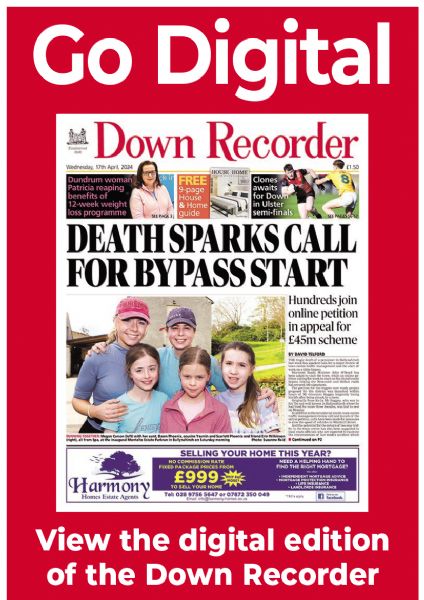Law change could hit local minibus drivers
Law change could hit local minibus drivers
15 November 2017
A WARNING has been issued that school teachers, youth leaders and members of the clergy who are paid to drive minibuses could end up being prosecuted for driving illegally, if they do not comply with new legislation.
New driver licensing laws are being introduced at the start of next year and there are fears people could fall foul of the new law because they are simply not aware of it.
People who held a licence which qualified them to drive a car would also have been able to drive a minibus, but revised guidance from the Driver and Vehicle Agency states they must now have a D1 category licence to do so, which can cost up to £1,000 and take months to secure. Minibus drivers must also hold a driver certificate of professional competence.
Last week, Newry, Mourne and Down Council called on the Department for Infrastructure to suspend consultation on introducing the new EU driven legislation specifically dealing with minibus drivers.
Francis Casement, chairman of Down Community Transport, said while its introduction is still being consulted upon, the government department is pressing ahead with its formal introduction in the New Year, despite the major implications.
He said the changes have major repercussions for people they serve who live in isolated rural areas who rely heavily on the community transport service, expressing concern that no finance is being made to help his organisation and others implement the required changes.
“Many people who drive minibuses and are paid for doing so are not aware of the planned legislation change. If they do not act to update their driving licences, they could end up in court for driving illegally,” suggested Mr Casement. “While the current focus of the legislative change is the impact it will have on community transport providers, the new law will impact on a much wider group of people.
“Anyone in a paid position who drives a minibus must have the new driving licence from the start of next year and given this is only a matter of weeks away, I fear many people are going to be caught out. They need to sit up and take note.”
Mr Casement insisted that Down Community Transport — which responded to over 20,000 requests between October last year and September 2017 — is not against the changes and agrees any enhancement of training is welcome. He explained the issue of concern is the timescale involved and the lack of resources to facilitate the change.
Deborah Boden, the manager of Down Community Transport which covers from Annalong to Ards and which celebrates its 20th anniversary next year, explained people have been allowed to drive minibuses under the current licensing system since 1967.
She said the organisation has nine drivers, four of whom have the new qualification, with the remaining five undergoing theory and practical tests so their licences can be upgraded.
“The new legislation is being introduced by the same government department which funds us and while we have no issue with this, there remains concern around the timescale for its implementation and the costs involved,” said Mrs Boden.
“We are also fortunate in that our drivers who do not have the D1 licence are contributing towards to cost of complying with the new legislation which says so much about their commitment and dedication.
Mrs Boden said the organisation has had to let go four of its casual drivers, with over 32 years’ experience between them, because it cannot afford the cost of retraining them to upgrade their licences.
“This has had an immediate impact on the group hire service we offer and we were recently forced to cancel a minibus booking to transport a local rugby team to an away game as no drivers were available. As a result, the cub will now be fined for being unable to fulfil the fixture,” she continued.
Mrs Boden added: “The legislation now clearly states that if you are paid for driving a minibus you must have the new licence which has major implications for many individuals and organisations. Down Community Transport is meeting a need, especially for people in isolated rural areas who rely heavily upon us. In some cases, our drivers are the only point of contact for these vulnerable people. We are working to ensure our staff fully comply with the new legislation but not everyone in the area may be doing so.”

